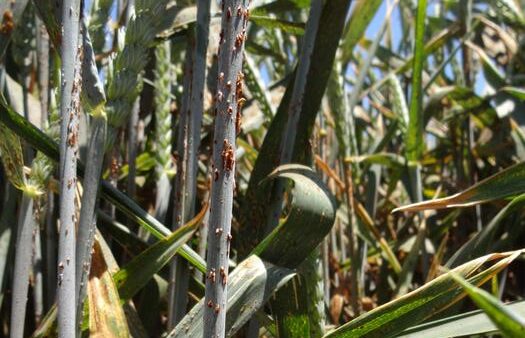At the World Agri-Tech Summit, Corteva’s CEO discusses where the future of seed innovation lies.
Why do we as a sector need to continuously innovate? It’s not a question you might often think about, but agriculture and the seed sector have unique challenges that most industries don’t have to think about, let alone deal with every day.
Think about climate change, food security and the energy transition. For Chuck Magro, it seems obvious that the seed sector and ag tech sector need to continue to build up resiliency to tackle these challenges.
“I’m very proud to be part of the agriculture industry. Today, we feed more people on less land with less natural resources and less emissions than we ever had before,” Magro, Corteva Agriscience’s CEO, says during a session at the World Agri-Tech Summit in San Francisco, Cali. “More people around the world will sit down to a full plate of dinner, and that’s because of all of you in the room and because of what our farmers do around the world every day. But, we have challenges and I’m certainly grounded in those realities.”
There’s a lot of work to do as an industry as the pressures of food systems continue to increase and expand. Due to these changes, the road ahead isn’t going to be an easy one to face — though no one would say it’s been an easy road so far, either.
In addition to climate change and food security, Magro says you have to think of the growing population, natural resources being threatened, the Russian invasion of Ukraine and the shift of energy transition towards renewable fuels.
“It’s never been a more complicated time to farm,” he says, adding that there are new threats to growing, including new weeds, insects and diseases.
Finding New Solutions to Challenges
To retain resilience, Magro says agriculture and the seed sector need to continue to change and grow. One change he’s noticed is a change in the global goal of agriculture. Instead of solely focusing on feeding the world, a new goal for companies is feeding and fueling the world in a sustainable way.
That means, biofuels and biologicals alike are going to become more important technologies for agriculture.
Why do we need a bigger focus on renewable fuels and biologicals?
“Our solutions are less intensive than fossil fuels,” Magro says. But, in addition, biologicals are helping to do this in a more sustainable way. “Biologicals is the fastest growing segment of the crop protection industry. By the time we get to 2035, biologicals will represent 25% of the global market.”
And though Magro doesn’t believe biologicals will replace traditional chemistry, he believes that to fight the new pests, diseases and weeds, growers need every tool possible to help the battle.
One biological product that Corteva is working on is a crop used in fruits and vegetables called Sosdia Stress. It allows the crop to act more like a cactus would — it doesn’t shut the crop down under extreme heat.
To Magro, a biological like that would have drastically improved the growing season in 2022.
“Eighty percent of the U.S. was in drought condition,” he says. “We need these biologicals.”
But, with new biologicals and a new focus on biofuels, where’s the next step in productivity to propel the industry forward?
“We believe it’s gene editing,” Magro says. “We believe that there’s a huge potential with gene editing, and it has more potential than biotech. It has the potential to make very precise changes where we can turn on and off genes — it’s a faster and more cost-effective way to do breeding with no foreign DNA.”
For Magro and Corteva, gene editing really has endless applications. It can help reduce corn stature, which is a bigger discussion topic among growers, and it can help reduce disease pressure on crop varieties.
“With gene editing, we can identify genes that will protect the crop, amplify them and move them to an optimal location so we can accelerate hybridization,” he says. “And we can do this faster than we ever thought we could as an industry before gene editing.”
Focus on Collaboration and Innovation
Though new tools are fantastic, there’s one other solution imperative to help create a more resilient industry: partnerships.
“Collaboration and partnerships are no longer nice to have,” Magro says. “They’re absolutely mission critical. We believe that we need to spend more time working with the entire value chain, including the startup community, to build an ecosystem of like-minded organizations who believe in working together.”
Especially with the banking issues surrounding Silicon Valley Bank, Magro believes that collaboration and investment in agriculture are going to be imperative going forward to maintain resiliency in the sector.
“Access to capital is a concern today. Access to capital, especially for this group, is the lifeline of innovation,” he says. “The macroeconomic volatility that we’re currently experiencing, along with the banking situation we just saw, has the potential to stifle innovation in agriculture, and we cannot allow that to happen. I see a great deal of opportunity for us to work together on a whole host of issues and opportunities.”











